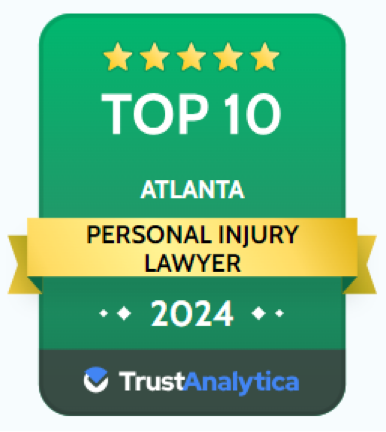All information provided about the law is very general in nature and should not be relied upon as legal advice. Every situation is different and should be analyzed by a lawyer who can provide individualized advice based on the facts involved in your unique situation, and a consideration of all of the nuances of the statutes and case law that apply at the time.
What are ICD-10 Codes for Motor Vehicle Accidents
A motor vehicle accident ICD-10 code (MVA ICD-10, sometimes known as MVC ICD-10 – motor vehicle collision – code) is a shorthand, standardized code used by medical professionals and insurance companies to quickly communicate a diagnosis and potential cause. In the wake of a car accident, the ICD-10 communicates critical information from first responders to emergency room physicians to follow up specialists. They also provide a record of diagnosis and treatment throughout the recovery process. In other words, an MVA ICD 10 code is the fingerprint of a motor vehicle accident’s health impact.
The code covers vast possibilities for different diseases, illnesses, and injuries alongside potential causes, giving medical practitioners an accurate picture of a patient’s diagnosis. A patient’s record may include multiple ICD 10 codes for a motor vehicle accident, depending on the injuries sustained. The code itself contains up to 7 characters that describe the affected body part, injury or illness, treatments, and where in the treatment process the patient is.
If you’ve been injured in a car accident, understanding MVA ICD-10 codes can help you make sense of your diagnosis, how an insurance company views the claim, and how you’re being treated. It can also become a critical source of information in the event of an auto accident lawsuit. We’ll break down where to find them, how insurance companies use these codes, and why they matter to you below.
Understanding an MVA ICD 10 Code
If you want to better understand your diagnosis, your insurance claim, or your recovery, it helps to know what specifically your healthcare provider has diagnosed you with. This starts with the MVC ICD-10 code, so it helps to know what it looks like and where to find it on the vast quantities of paperwork you likely have after an auto accident.
What an MVC ICD 10 Code Looks Like
All ICD-10 codes contain a sequence of numbers, letters, and periods to indicate where, what, and how a person became sick or injured. In an ICD 10 code for a motor vehicle accident, you may see multiple codes. One may indicate the cause of the injury and the other may describe the injury itself.
The ICD-10 Code groups motor vehicle accidents under the letter V, so any cause of injury related to a motor vehicle is likely to begin with that letter. The two numbers after the letter will describe who was injured, like a car occupant.
After a period are an additional two numbers that describe who in the vehicle was injured, whether the accident was traffic or nontraffic (not on a public roadway), and what the car collided with. There may also be a placeholder X, to get to the required 7 characters. Finally, the last character indicates whether this is the patient’s initial encounter, follow-up, or longer-term follow.
Common ICD 10 Codes for MVC
Putting it all together, you may see common codes used after a car collision. Here are just a few:
- V43.53XA: Indicates a car driver was injured in a collision with a pickup truck on a public roadway.
- S14.4XXA: indicates an initial encounter for a patient suffering from a sprain of ligaments of the cervical spine (neck). -hat we know as whiplash.
- S26.91XD: Subsequent encounter for a patient with a heart contusion. Can occur after a collision with a non-moving object
- S06.0X9A: Initial encounter for a patient with a concussion after suffering a loss of consciousness for an unknown amount of time.
- V09.20XA: Pedestrian injured in a traffic accident collision with an unspecified motor vehicle.
Where to Find an MVC ICD 10
The first place to look for an ICD 10 code is on an Explanation of Benefits letter sent from your insurance provider. This may be in the first page of the letter explaining what you were treated for and how. Or, the ICD-10 code might appear as part of an itemized list of procedures, costs, insurance coverage, and deductibles on the page that follows.
If the Explanation of Benefits letter doesn’t contain the ICD 10 code, you may be able to find it on documentation from the healthcare provider. The code should be recorded in your medical records located underneath a section marked, “Diagnosis” or Dx. It may also be located on bills that you receive from the healthcare provider after receiving treatment.
How Insurance Companies Use MVA ICD 10 Codes
One of the reasons behind the creation and implementation of the ICD codes in general, and the ICD 10 in particular, is their use in public health. Public health agencies like the CDC or World Health Organization use ICD codes to understand and track public health outcomes like the spread of infectious diseases, increasing or decreasing rates of a particular injury, and the success of certain treatments.
Insurance companies can also utilize the rich data possibilities that ICD 10 codes provide. Through years of tracking and paying out claims, insurance companies believe they know the exact treatment, duration, and cost for each ICD-10 code.
Insurers use MVC ICD 10 Codes to Process Claims
On the one hand, insurance companies argue this speeds up claims processing. Rather than have an adjuster read through tons of medical records trying to find similar diagnoses, an automated system can recognize the same ICD-10 code and spit out an estimated cost.
Insurance companies can then reference this cost against what the healthcare provider is charging, the accompanying notes, and then decide whether or not to cover the claim up to the policy limits. But the estimate the system generates may not be the full story.
In a given year in the U.S., there are as many as 6 million vehicle accidents each year, meaning 6 million unique accident stories, experiences, pain, and outcomes. As useful as the ICD-10 codes are in grouping these into a cohesive narrative that policy advocates can use to minimize harm, they’re less helpful in creating one size fits all treatments for such diverse experiences.
Why MVA ICD 10 Codes Matter
ICD-10 codes pack loads of information into very few characters, making them a crucial component of an accident victim’s treatment, recovery, and claims process. If there are errors in the code, even just one number, it can reshape the entire claim—the payment, treatment, or even getting it approved in the first place.
If you’re facing an insurance claim payout that’s less than what you expected or an outright denial, contact an attorney. They can look at the ICD-10 code and cross-reference it against the accident report, footage, and eyewitness testimony to see if the code captures the full picture.
Consider a situation in which the EMS mistakenly lists an injury as G44.209A, an unspecified tension-headache. An insurer may provide little, if anything to treat that. But what if in the coming days the headache persists and a doctor records S06.0X0, a concussion without a loss of consciousness? If the insurance company is still relying on the initial ICD-10 code, it could complicate the claim and your recovery.
Call Montlick to Resolve MVA ICD 10 Issues
If you’ve been injured in a car accident only to be met with hostility and a subpar offer from the insurance company, it’s time to call Montlick. If the insurance company is operating with the wrong MVA ICD 10 code or thinks it tells your full story, it could be costing you the treatment you deserve. At Montlick, we track down our clients’ ICD-10 code information so they can focus on recovery. Then we go to work fighting the insurance company on their behalf for the justice they’re owed.
Contact Montlick today to find where Real Legal Help Begins©. Your initial consultation is always free.
How useful is this for you?
Would you like to speak with an attorney?
Call NowWe Win More than Settlements.
We win the peace-of-mind you need to get your life back.
At Montlick, we believe comprehensive legal representation is a right, not a privilege. That’s why we provide our services on a contingency fee basis. You only pay when we win.









